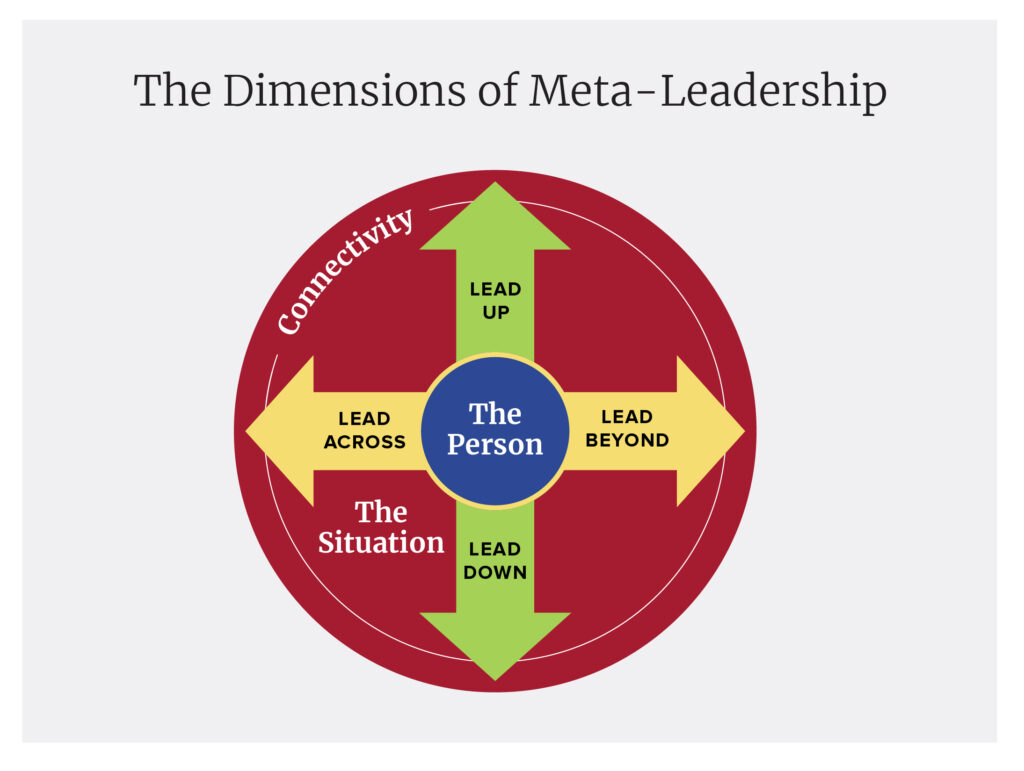Our Method

Programs that are pragmatic, current, and rigorous
NPLI programs integrate insights from frontline experience with academic scholarship. Central to our approach is the original Meta-leadership framework and practice model developed through 20 years of field research, practice, and teaching. The content and curriculum continually evolve to incorporate recent learning and to address emerging threats and contingencies.

The Standard for Crisis Leaders
Meta-leadership is practiced by leaders across the public, private, and non-profit sectors worldwide. Its three dimensions direct leaders to better understand and ground themselves (the Person), gain insight into the context in which they lead (the Situation), and forge meaningful, productive relationships within and beyond their organizations (Connectivity). Just as Meta-Leadership is an effective guide for times of crisis, it is a pragmatic strategy for everyday leadership.
Building Essential Skills
The urgency of crisis calls for rapid analysis and action, often requiring leading through influence beyond your authority. The Meta-leadership model orients toward leading in multiple directions: “down” to your team, “up” to your hierarchical superiors, “across” to peers, and beyond to external stakeholders. The tools, techniques, and exercises in each program build the confidence and competence to lead through the complexity of crisis and change.
Research Translated into Field Impact
Meta-leadership draws upon many areas of expertise and scholarship including leadership, neuroscience, psychology, organizational behavior, negotiation, social biology, and more. This commitment to broad inquiry generates new tools and methods for crisis and change leadership, including “Swarm” behaviors to encourage collaboration, the “Walk in the Woods” for resolving conflict, and “Getting Out of the Basement” for overcoming panic impulses.
Participants leave the NPLI experience better understanding themselves as leaders and prepared for the mission-critical challenges they will face.

